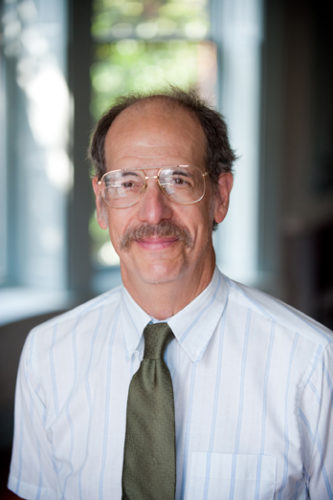
Paul Alan Levy, J.D.
Public Citizen Litigation Group
Attorney
Expertise:
Labor LawLabor Law
Paul Alan Levy has a bachelor’s degree from Reed College and a J.D. from the University of Chicago. After working as a law clerk to Honorable Wade H. McCree, Jr. (United States Court of Appeals, Sixth Circuit) and Special Assistant to Solicitor General McCree, Paul joined Public Citizen Litigation Group in 1977 to represent workers in rank-and-file labor law cases, largely representing dissident union members in cases involving union governance. He has been with the Litigation Group ever since, with the exception of a one-year sabbatical when he taught at Cardozo Law School. Paul has argued scores of cases in United States Court of Appeals (three en banc). He has argued four cases in the United States Supreme Court, as well as writing briefs for parties in seven other cases. One odd aspect of his Supreme Court practice is that each of these 11 cases was decided 9-0, win or lose. For the past 20 years, Paul has specialized in free speech issues arising on the Internet. He has litigated cases in state and federal courts throughout the country about the identification of anonymous Internet speakers. His amicus curiae brief in Dendrite v. Doe, whose approach was adopted by New Jersey’s Superior Court Appellate Division, has become the model for other cases. His Internet practice also includes the defense of trademark and copyright claims brought as a means of suppressing critical web sites. His cases in this area, such as Bosley Medical v. Kremer, Lamparello v. Falwell, and Jenzabar v. Long Bow Group, have established the right to create internet “gripe” sites that include the trademark names of companies in their domain names and meta tags. A blow-by-blow account of his first major case on that issue appears at taubmansucks.com In Smith v. Wal-Mart Stores, he defended the right of a parodist to make fun of Wal-Mart’s trademarks. In arguing against the issuance of prior restraints in Bank Julius Baer v. Wikileaks, he had the key insight that the case had been filed without subject matter jurisdiction. His work in such cases as Lee v. Makhnevich and Prestigious Pets v. Douchouquette, opposing the enforcement of non-disparagement clauses in consumer contracts, presaged the adoption of the federal Consumer Review Fairness Act that made such clauses illegal. In Dimondstein v. Postal Workers, he established that the right of intra-union candidates to have campaign literature distributed to union’s list of membership addresses included the right to send literature by email. In Smith v. Garcia, he established the right of Internet speakers to oppose orders compelling the delisting” of their blogs from search engines. He has litigated cases under anti-SLAPP laws in several different states and advocated the adoption of new such laws as well as toughening existing ones. He gives a continuing legal education course on Practical Considerations in Litigating Online Free Speech Cases. A description of his work in this area was published in the Washingtonian Magazine as “Paul Levy, the Web Bully’s Worst Enemy.” He currently serves on the Legal Review Committee for the American Civil Liberties Union for the District of Columbia. Media Appearances: Paul had been quoted in publications such as Los Angeles Times, The Wall Street Journal, The New York Sun, The Dallas Morning News, Editor & Publisher, The Minneapolis Star-Tribune and The Philadelphia Inquirer.